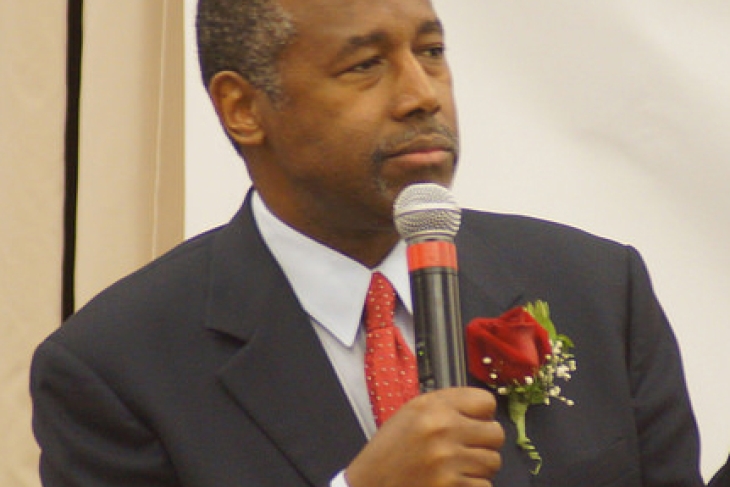Ever since the birth of the modern reform movement, the GOP has faced a dilemma on federal education policy: Should it focus on the party’s federalist principles and push for a limited federal role in the nation’s schools, or use Washington’s authority to empower parents and shake up the system?
That tension was on full display this week as Republican candidates Marco Rubio and Ben Carson sat down with the Seventy Four’s Campbell Brown. The two want everything and nothing to do with education reform, expressing simultaneous desires to be the “education president” (hmm, where have we heard that before?) while also seeking to curtail federal involvement in a system that they maintain can only be redeemed through local efforts.
The discussions offered a rare glimpse at how candidates view the president’s role in American education, a topic that continually fails to surface during primary debates.
The K–12 system fails so many students growing up in poverty, and Carson was almost one of them. But thanks to the heroic intervention of his mother, he learned to read and developed a passion for science. He also took charge of his own schooling by seeking out after-school help when disruptive students prevented teachers from finishing lessons. “The person who has the most to do with what happens in life is you,” Carson said.
Perhaps that’s why Carson said that he views homeschooling as the best form of education—followed by private, then charter, then public schools. Failing public schools often lead to dropouts, which Carson labeled a scourge. “That’s one less tax-paying, productive member of society who may discover the cure for cancer or a new energy source. So we really can’t afford to be wasting these people,” he warned.
Rubio proposed a school choice program that would give students financial access to private schools by redirecting portions of corporate taxes into a scholarship fund. “Low-income parents do not [have school choice options], and that’s wrong, that’s immoral,” Rubio said. But he also expressed skepticism that the federal government could do anything to assist in school choice other than getting out of the way.
Both candidates saved special enmity for Common Core—particularly Carson, who wished it “a quiet death.” Rubio rejected national standards as a threat to state autonomy, but saved his explicit death wish for the Department of Education. He proposed transferring department programs like student loans to the Treasury and remarked that K–12 must be local enough for parents to have an influence.
But what was most on display was the Republican Party’s fundamental conflict on federal education policy. Carson’s view of the federal responsibility see-sawed between “the less federal interference, the better” and “the federal government can do important work” (though he failed to say what that might entail). When asked if he wanted to be seen as the president who made education his area of focus, Rubio answered, “I do, but one of the best things the president can do is not involve the federal government.”
Clear as mud.
View Rubio’s full interview here and Carson’s here. And candidates, if you’re looking for a way through this morass, you might peruse my colleague Mike Petrilli’s ready-made speech on the subject, “Six Education Themes for 2016.”
Marc Nozell/Flickr

